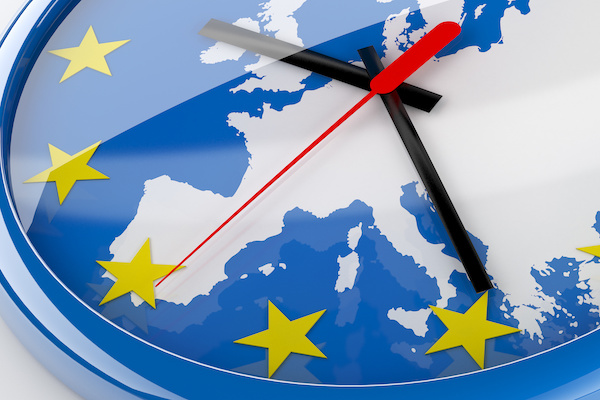02 June 2020
“Long live Europe”: it’s time for Europe!


“The crisis we have to tackle is enormous. But it is also huge opportunity for Europe. And it is a huge responsibility for us to do the right in this defining moment. We can now lay the cornerstone for a Union which is climate neutral, digital and more resilient than ever before. Seventy years ago our founding fathers and mothers took the first courageous step to create a Union of peace and prosperity. Today is the time to write our generation’s chapter to the story and take another courageous step towards a stronger Union. We owe it to future generations. Long live Europe”! Given the health context, the European Commission President Ursula von der Leyen whom proposed a €750 billion recovery plan on 27 May in front of an unusually sparse European Parliament did not have the opportunity to arouse the enthusiasm of MEPs. Never mind, as the initial objective was quite different: bringing the European Union out of the torpor in which it confined itself more than two months ago and thus take a further step towards the creation of the “de facto solidarity” so beloved of Schuman. UFE takes stock of the proposals presented and the aftermath that could result for the power sector.
United in diversity
€750bn of mutualised debt on a European scale is a de facto departure from the economic doctrine previously advocated by the European executive. Indeed, for the first time in its history, the Commission has proposed a Community loan on the financial markets.
Over the next three years, the “Next Generation EU” recovery instrument intend to provide subsidies to the extent of 500 billion euros to all Member States. These subsidies will be allocated by taking into account the consequences – especially the economic ones – of COVID-19 on each of the States (France should for instance receive 39 billion euros). The remaining 250 billion euros will be allocated in the form of loans to the states that are currently experiencing the greatest difficulties. The reimbursement of the debt will be staggered between 2028 and 2058 through the future budgets as well as through the implementation of new resources such as revenues from the EU Emissions Trading Scheme (ETS) or the Carbon Border Adjustment Mechanism.
The €750 billion envelope will be added to the amount of the future Multiannual Financial Framework (MFF) for the 2021 – 2027 period. The Commission proposed to set the MFF at €1,100 billion, which is equivalent to just over 1% of the Union’s gross national income. More than ever, the MFF will have to be used to support the energy transition so that economic recovery goes hand in hand with the fight against climate change and UFE will be vigilant in this regard.
The recovery will be green or will not be
UFE welcomes the European Commission’s proposal to use the income from the ETS to repay the loan. UFE recalls that an increasing carbon floor price is essential in order to properly direct investments towards decarbonated technologies while avoiding price volatility. In order to ensure both the effectiveness and the sustainability of such a reform, it will have to go hand in hand with the introduction of a border adjustment mechanism that will make it possible to effectively combat the relocation of emissions.
By making the granting of the above-mentioned allocations subject to a compliance check in the light of the objectives set out in the Green Deal, the Commission is sending a strong signal to all stakeholders. Indeed, the economic difficulties encountered by the 27 must, under no circumstances, justify a step backwards that would result in a downward revision of the trajectory that is supposed to lead us to carbon neutrality by 2050. In that regard, UFE welcomes the fact that at least 25 % of the expenditure will be channeled into climate action and that the three pillars on which the Commission intends to base its economic recovery are closely linked to climate objectives. The first pillar will make it possible to support the Member States in the area of investment and reforms via a €560 billion envelope to be allocated in the form of loans and grants, provided that the public investment is compatible with national energy and climate plans (NECPs) and that it does not “significantly harm” the environment. The second pillar will aim to stimulate private investment by strengthening the Union’s strategic autonomy while at the same time reinforcing value chains. The third pillar will be devoted to health, research and innovation. UFE fully supports the Commission’s approach which will allow to focus on promoting European know-how therefore facilitating the emergence of European sovereignty and leadership in the fight against climate change, and so, regardless of the technology (renewable energies, storage, clean hydrogen, batteries, sustainable strategic infrastructures…). The initiatives in the Commission’s updated work programme (revision of the TEN-E regulation, smart sector integration, renovation wave…) will be an opportunity for UFE to be once again a leading voice and to highlight the essential role that electricity plays in the decarbonisation of the economy.
Which political arbitrage?
However, this wide range of proposals does not have the support of all Member States as some (Austria, Denmark, the Netherlands, Sweden) do not see the use of debt pooling or why the EU should operate a significant increase of its budget. On 19 June, the next EU summit will aim to change their positions in order to reach a compromise as unanimity is required. Then, the national parliaments will still have to give their approval by the end of the year. Germany will take over the Presidency of the EU Council in July and will have to deliver as the European has a settle an appointment with history and must arrive on time.
Find out more
25 February 2020
Brexit: love last 47 years


About us
The Union of the French Electricity Industry is the trade association of the French electricity sector. We bring together companies from the whole value chain of the electricity industry.
Find out more










